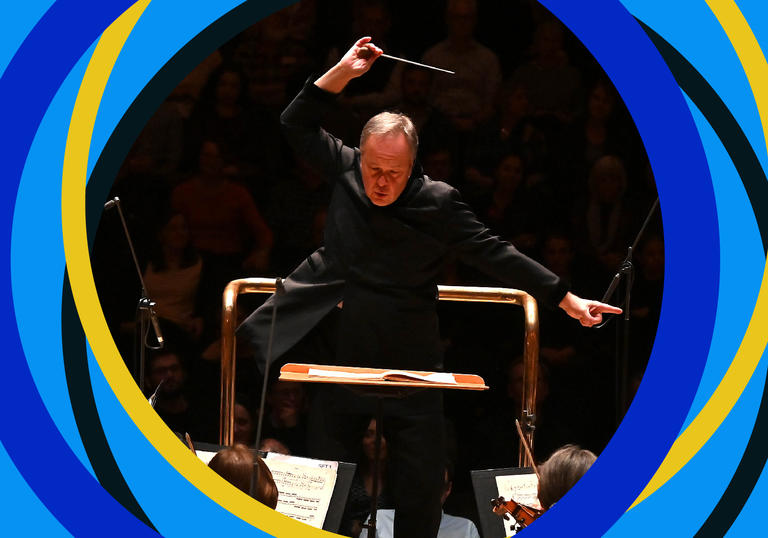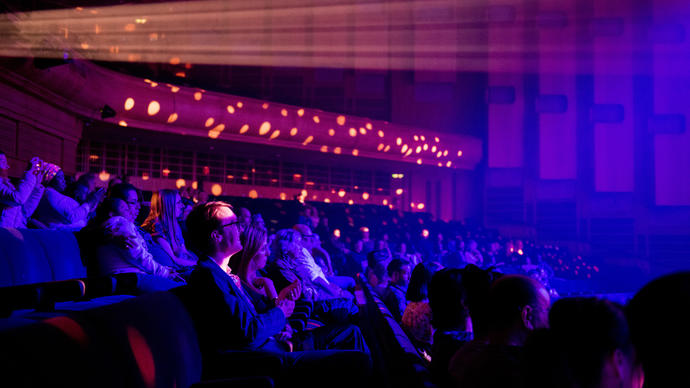Betsy Jolas grew up in Paris surrounded by artists: her parents ran a literary journal and guests included James Joyce, Gertrude Stein, Ernest Hemingway and Henri Matisse. Jolas observed their more eccentric foibles with characteristic wryness but, despite some early self-doubt, she knew that a career in the arts beckoned. By her teens Jolas was certain that she wanted to be a composer, and her voice developed during studies with Arthur Honegger, Darius Milhaud and Olivier Messiaen; she became Messiaen’s assistant at the Paris Conservatoire and was appointed to the faculty there in 1975.
By this time Jolas had spent years in both France and America. She embraced modernist techniques alongside Pierre Boulez at his ‘Domaine musical’ in the 1960s, but another key facet of her style stemmed from a different source entirely: Renaissance music. Jolas’s love of this repertoire started with a performance of Monteverdi given by Nadia Boulanger, and was consolidated while singing in the Dessoff Choirs during studies in New York and at Bennington College in Vermont. Jolas has gone on to teach in America at Yale, Harvard, Berkeley, UCLA, Mills College and Tanglewood, among others.
Letters from Bachville was commissioned by Gewandhausorchester Leipzig and the Boston Symphony. Leipzig, Johann Sebastian Bach’s town, prompted a piece centred on Jolas’s memories of Bach; ‘Bachville’ is a nod to similar American placenames. As Jolas writes, the work reflects ‘the great moments of my Bach memories, but also illustrates the way this music is so often heard today, boiled down to the opening notes of a few famous pieces, then hastily put together for both easy listening and instant interruption.’
Fragments of Bach pervade the piece, sometimes with their intervals altered, along with Jolas’s own passacaglia and Bach’s musical signature (B-flat, A, C, B-natural – ‘H’ in German notation). Yet this is not a piece ‘about’ Bach; it is personal to Jolas, who says of her compositional process: ‘I think the piece is finished when I recognise myself’.
While Betsy Jolas embraced the European avant-garde, Ruth Gipps forged her own path, veering away from overtly modernist tendencies in favour of a language that incorporates many of the traditions with which she grew up, yet is quite distinctive in quality. A highly versatile musician, Gipps entered the Royal College of Music to study oboe and piano, as well as composition with Gordon Jacob and Ralph Vaughan Williams. She was later successful as a conductor and music director.
Indeed, Gipps’s career was initially promising: her piano quartet won the Cobbett Prize; Sir Henry Wood featured her Knight in Armour at the 1942 Last Night of the Proms; her Second Symphony was performed in 1946 in Birmingham, where she worked variously as oboist, pianist and chorus master with the City of Birmingham Symphony Orchestra and Choir. Gipps and Sir Malcolm Arnold were mutual admirers who corresponded regularly. Yet Gipps faced misogynist discrimination elsewhere and struggled against modernist tides in the 1950s and 60s.
The fierceness with which she had to fight her corner sometimes led to a certain bitterness that in turn did not always endear her to her peers, and has at times hampered her reputation since.
Gipps’s Horn Concerto was composed for her son, Lance Baker, who gave its premiere in 1969 with Gipps conducting her own London Repertoire Orchestra. The work exploits the instrument’s lower register, and opens with a spacious, serene, sometimes Holstian movement in which the horn’s cadenza is substantial without being excessively showy. This irresistibly dreamy atmosphere returns in the livelier second movement, and again in the spirited finale during a duet for horn and celesta.
Brahms took about 21 years to write his First Symphony, but once this hurdle had been overcome he wrote the Second quite quickly. Brahms toyed with his publishers when describing the Symphony No. 2, writing (probably with tongue firmly in cheek) that the work ‘is so melancholy that you will not be able to bear it. I have never written anything so sad, and the score must come out in mourning’. The symphony was first performed on 30 December 1877 and was hailed by critic Eduard Hanslick as ‘a great, unqualified success’.
The lyrical opening melody dissolves into a darker sonority for trombones and timpani, although the melodic radiance of the movement ultimately prevails, including a theme introduced on violas and cellos based on ‘Brahms’s Lullaby’, a tune he had composed for his Wiegenlied (‘Lullaby’), Op. 49. The coda is unusual for a symphonic first movement, ending not with bombast but with gentleness.
The richly Romantic second movement begins with violas and cellos unfolding one of Brahms’s deliberately ambiguous creations, a theme in which a fluid sense of meter is enriched by a wealth of ideas that lend themselves to ‘developing variation’. This term was coined by Arnold Schoenberg, who wrote an essay called ‘Brahms the Progressive’ crediting Brahms with innovations including this technique, in which processes of variation and development are combined.
Brahms begins the pastoral third movement with an oboe theme supported by the winds, and with cellos playing pizzicato (plucked). The movement is in an unusual form, combining elements of the Scherzo and Trio pioneered by Ludwig van Beethoven with a more episodic rondo structure. Fleeting shadows pass across the finale, but hope wins, and the work ends in a glorious blaze of sunshine.
© Joanna Wyld
Co-produced by the Barbican and BBC Symphony Orchestra


